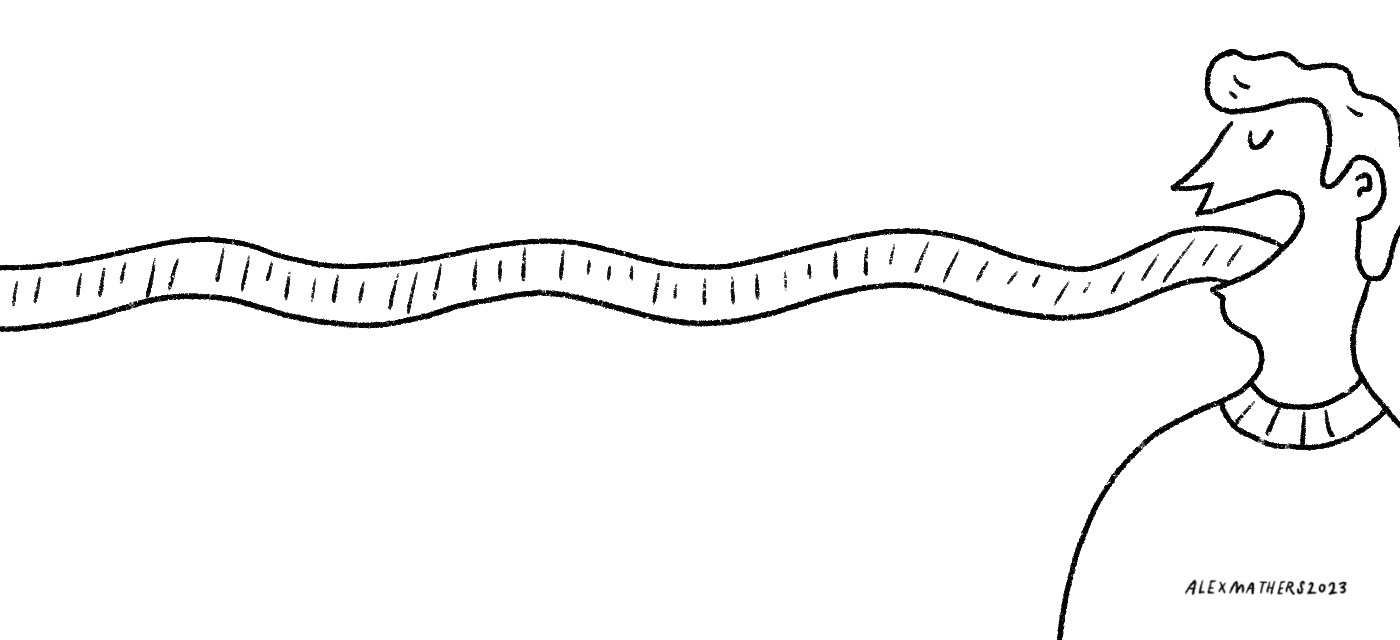Anything that’s ever been written can be criticised
And why this should not stop you.
Mastery Den, Tuesday Edition, 2-min read.
—
Join us for free at the Mastery Den Telegram for daily content ideas so you never run out of ideas.
—
One of the Universal truths you will find as a writer, content-creator or producer of any sort is that people will find a way to criticise your work.
I’ve had my work criticised, no matter the content, the angle, the hook, the choice of words or grammar, for over a decade.
You can share a piece helping people make money and be labelled a ‘grifter.’
You can share a piece helping someone improve themselves, and the self-help haters will emerge.
You can share a piece that makes fun of self-help, which will offend the self-help fanatics.
You can share a piece on current affairs and be accused of jumping on trends to further your brand.
Criticism is inevitable, evergreen and will be there for as long as we choose to play this funny online game.
And where there is the potential to be publicly criticised, there is also the risk of losing faith, allowing doubt to creep in, and doing the unthinkable: to avoid putting yourself out there entirely.
This is not a good thing if you allow it to sway you.
With every new day, we say how precarious the old way is becoming. By this I mean relying on a boss or governments or ‘stability’ for our security and livelihood.
Our need to be self-reliant and build our own little forts, islands, or boats - whatever the analogy - is increasingly significant.
We must put ourselves out there regularly to reap the rewards of this new economy.
Even if you choose to work with a handful of people and side-step the vast online audience thing, you will still need to handle potential rejection and criticism.
But this needn’t be a problem.
Only if you view judgements from other people as significant.
It’s a choice that you - yes, you - can make.
Everything that’s ever been created and shared so that others can see it - it’s criticisable.
Understand this, be open to it.
Embrace it.
You can.
You know why?
Because you do not equate (inevitable) criticism with a decrease in your self-worth.
You must absorb this idea.
You are free and happy, and alive regardless of what someone says.
This is a spiritual and a scientific fact.
You can take it a step further too:
Be happy for the crit and the hate.
It’s a sign you’re polarising, which is - to be honest - what we all need to be looking for.
This doesn’t mean you’re an intentional asshole and say terrible, controversial things to get likes.
It’s about being real. Not everyone can abide by your real.
If everyone agrees like nodding donkeys, I get worried.
If you’re being truly YOU, you’ll be prompting some dislike and some unsubscribes.
SO…
If you’re seeking negative criticism…
How could you possibly lose?
Thanks for reading.
Join us today for extra member’s perks:
You receive instant free access to my $290 course on learning how I improved my online writing to attract a readership of over 160,000: Online Writing Alchemy (and community access).
You also get weekly Thursday exclusive video content for members to help get you an unfair advantage in growing your brand fast and being a powerful writer.
You also get access to all the hundreds of locked posts to accelerate your brand.
Hit the subscribe button below to join.
Buy Alex’s book, ‘The Art of Self Respect: Twenty-five subtle habits for cultivating deep self-respect and attracting the respect of others.’
Here is Alex’s latest book, ‘Creatively Jacked: 43 badass motivation ideas for ambitious creators, today.
Contact Alex here if you’d like to discuss how he can work with you to help achieve your goals.




Love it , one of the things that pull you back from putting yourself out, was really helpful.
Alex/Joe-Kwame,
it is common use in western society assuming dialectic stand of Trias, (Sokrates, Aristoteles and Platon) when entering a reflection on content and debate same. Criticism without a better, upgrading option is poorly visioned and not productive; if substance, content and a vision herself stands in the foreground. It is not an EGO, what is irrelevant in an objective, factual debate. One should always focus to have a better result in a context or case than before when you started out.
Respectful, friendly approach within a team or group of persons is fundamental in an effort to reach harmonious outcome, after all. Thank you Alex for good value.
Namasté, Joe-Kwame